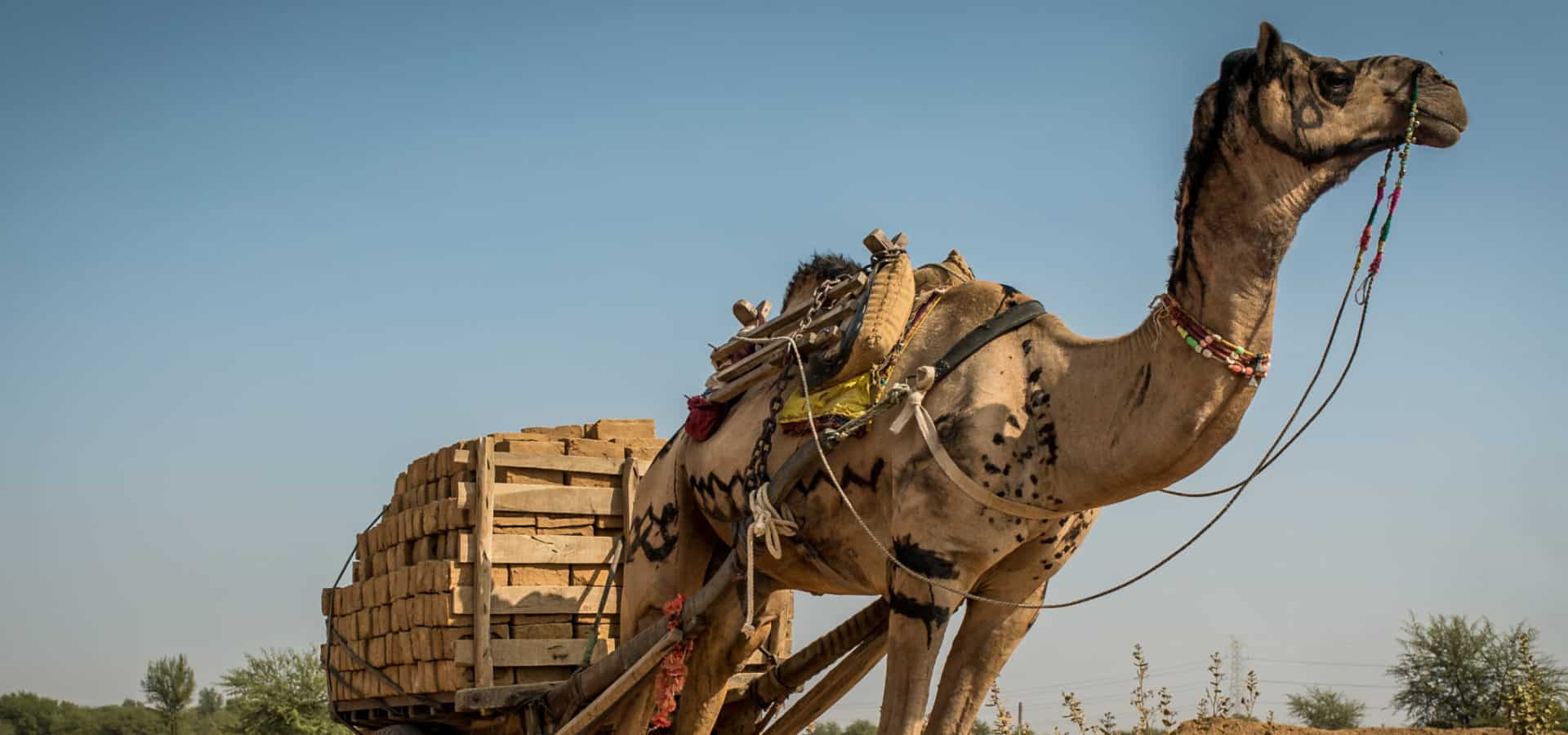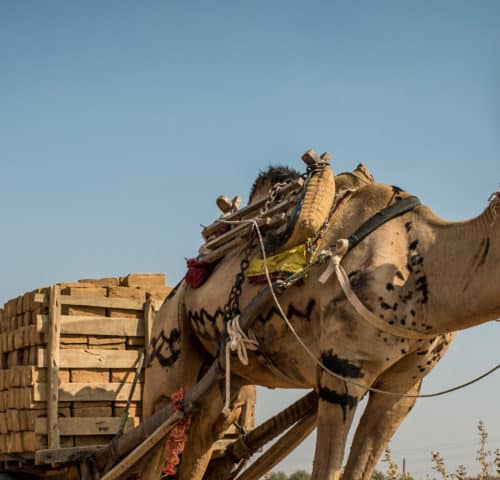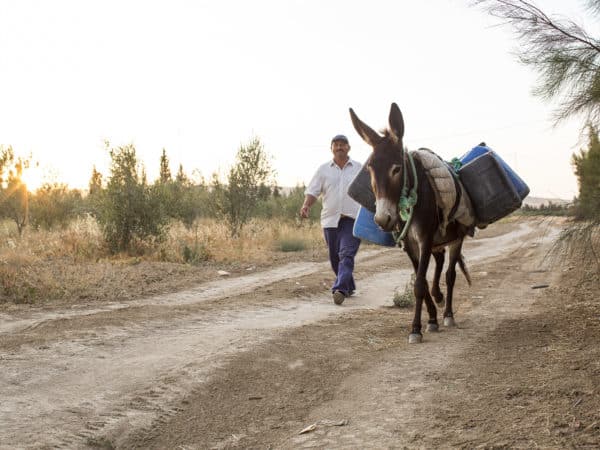In one of the world’s largest and most populated countries, many people rely on horses and camels for tourism and transportation to earn a small income. We’re working in India to treat working animals in need, to train owners in animal care and to teach children to respect and care for the working animals that have such a vital role in their daily lives.
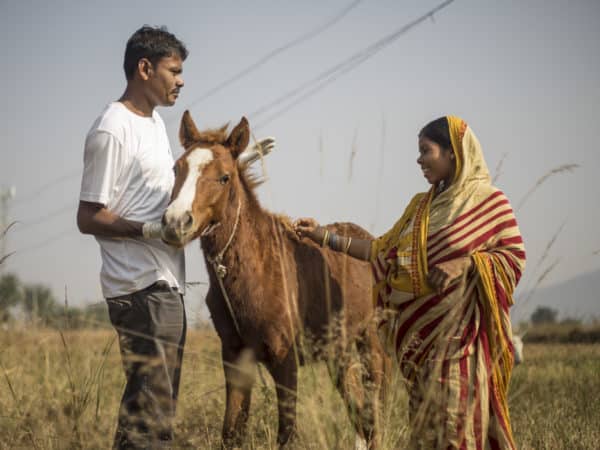
India at a glance
- Population: 1.4 billion
- Area: 3,287,263 square km
- Location: Asia
- Capital city: New Delhi
- Estimated number of working animals (including cattle): 194,267,459
- Number of mobile veterinary clinics: Five
- Number of working animals treated in 2023: 15,330
- Number of animal owners trained in 2023: 6,945
- Number of children receiving animal welfare education in 2023: 1,378
Our work in India
Working across India, our mobile veterinary clinics treat thousands of working animals a year, particularly camels, cattle and donkeys. Our mobile clinics provide free veterinary care to camels, replacing traditional nose pegs with more humane versions, and fitting cart reflectors to reduce road accidents. In the east of the country, our mobile clinic helps sick and injured cattle.
As well as helping working animals, we train communities and animal owners in humane care, so that they know how to look after their animals properly. Our teams also make regular visits to camel fairs and brick kilns, to advise owners and encourage them to avoid traditional practices that can be harmful to the health and wellbeing of their animals.
We also teach children to develop their knowledge of animals through animal welfare education.
Working on the ground in India, we’re able to act swiftly if an emergency strikes. In 2021, in response to the global coronavirus (Covid-19) pandemic, we carried out an emergency feeding programme in eastern India to provide much-needed nutritious feed to horses and camels suffering from malnutrition. In 2019 and 2018, we provided lifesaving emergency veterinary care to animals seriously impacted by cyclones. Thanks to your continued support, we were able to be on the ground as soon as the cyclones had passed to ensure animals were cared for when they needed us the most.
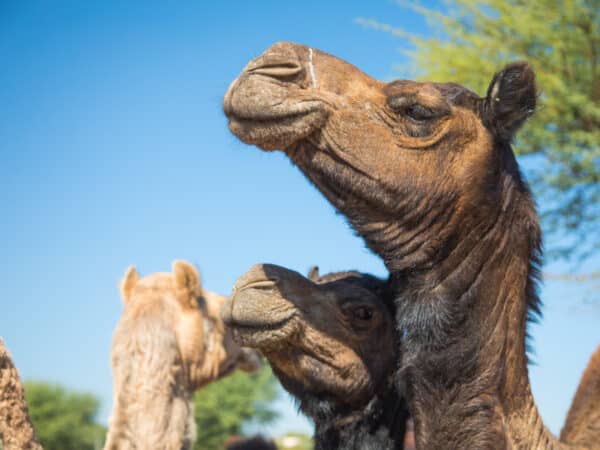
Dholee the camel’s relief from parasites
Dholee the camel transports goods for her owner, Hemraj, in Bagru, near the city of Jaipur, in India.
Dholee is usually a healthy, docile camel, but one day Hemraj noticed that she couldn’t stop itching. She kept rolling on the ground in an effort to scratch her irritated skin and was starting to lose her hair. Hemraj hated to see Dholee in such discomfort, so he took her to SPANA’s mobile clinic the next morning.
Dholee and Hemraj were first in line at the busy clinic. SPANA vets quickly diagnosed Dholee with mange – a parasitic skin disease caused by an infestation of mites. To tackle the problem, they gave her an anti-parasitic injection. They also applied a topical treatment to the areas where Dholee had started to lose her hair and gently rubbed a soothing cream on the skin that was most inflamed to encourage healing and give her some relief. Hemraj was advised to clean Dholee’s bedding thoroughly and to keep her away from other camels until she had fully recovered.
Hemraj said: ‘I don’t know what I’d do without Dholee. It’s good that we can come to SPANA for help because I would not be able to buy expensive medication. Thank you.’
Other countries we work in
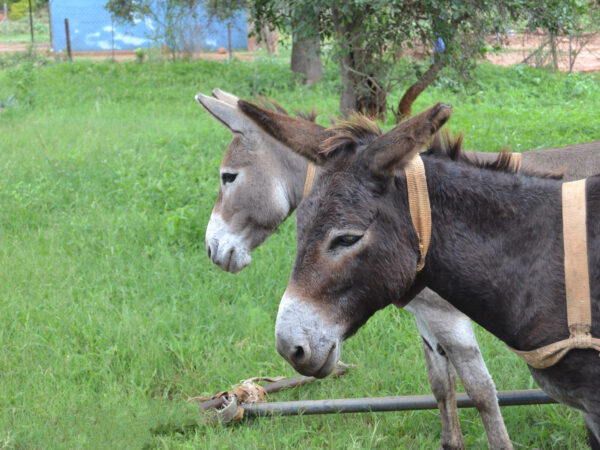
Helping working animals in South Africa
Read about how SPANA is helping working animals in South Africa.

Helping working animals in South Africa
Read about how SPANA is helping working animals in South Africa.

